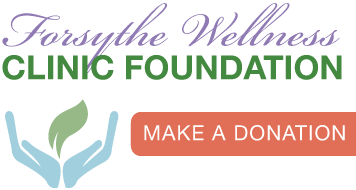Dr. Forsythe introduces the Genomic Cancer Testing on Circulating Tumor Malignant Cells (CTCs) found in whole blood to all his patients.
CTCs are one of the best non-invasive cancer markers as it gives an accurate and paramount picture of the tumor and is useful to:
- Estimate prognosis
- Detect cancer that remains after treatment (residual disease) or that has returned after treatment
- Assess how well a treatment is working by the CTC numbers
- Monitor whether the treatment has stopped working
Measurements of circulating tumor markers are usually combined with the results of other tests, such as biopsies or imaging, to diagnose cancer. Dr. Forsythe uses the measurements of the circulating tumor cells after the referring physician or patient has been diagnosed with a cancer through the above methods. The standard of care for all diagnostic cancer is the tissue tumor biopsy.
Although an elevated level of a circulating tumor cell may suggest the presence of cancer and can sometimes help to diagnose cancer, this alone is not enough to diagnose cancer. For example, noncancerous conditions can sometimes cause the levels of certain tumor markers to increase. In addition, not everyone with a particular type of cancer will have a higher level of a tumor marker associated with that cancer. Therefore, measurements of circulating tumor markers are usually combined with the results of other tests, such as biopsies or imaging, to diagnose cancer.
Circulating tumor markers may also be measured periodically after treatment has ended to check for recurrence (the return of cancer).
This test isolates an individual patient’s circulating tumor stem blood cells and gives a customized cancer treatment plan for each patient depending upon the DNA of the specific tumor of each patient thus creating a blueprint for each individual’s cancer treatments.
Can Genomic testing identify the most effective chemo drugs?
Genomic testing defines the top chemotherapy agents which are most effective in the treatment of each patient’s cancer as well as hormonal blockers. The Genomic Test can identify the top chemotherapy at a percentage rate of 83% and lower. The top two most effective chemo agents are used and given in a 10% dose vs 100% dose thus decreasing adverse side effects from the strong toxic chemo drugs such as:
- Chemo Brain Syndrome/Chronic Depression
- Painful Neuropathies
- Cardiomyopathies
- Renal Failure / Platinum toxicities /Hepatic Failure/Hearing Loss
- Severe Pancytopenias
- Pulmonary Fibrosis
- Devastating Fatigue, Anorexia and Wasting Syndromes
- Osteoarthritis, myalgias, osteoporosis
- Severe dermatoses
- Death
Genomic testing isolates supplements, herbs, and vitamins that are most effective in the treatment of one’s cancer.
Chemo Sensitivity + IPT + Lipoic –Acid-Palladium (LAPd) Compound can produce higher survivorship rates if the
correct chemo drugs are used.
The Forsythe Immune Protocol™ shows an average overall survivorship rate of 68% depending on specific cancers as identified in a prospective study over a 120-month period in 2,000 Stage IV cancer patients analyzed from 03/12-03/22.
Dr. Forsythe identifies the benefits of Chemo Sensitive Testing through the Genomic Testing on Circulating Tumor Cells.
What are the benefits of Genomic Testing?
- The identification of the tumors’ genomic make-up by isolating the circulating tumor cells’ number in each cancer.
- The best targeted drugs (Immunotherapy)
- The best chemotherapy agents
- The best hormonal and HER-2 Blockers
- The best hormonal, supplement, and vitamin therapies
What are the advantages of Genomic Chemosensitivity Testing (CST)?
- Noninvasive technique on whole blood
- Cancer cells harvested from blood and grown in vitro
- Subjected to genetic decoding
- Results include over 50 varieties of chemo drugs, targeted agents and greater than 75 individual supplements and vitamins
- Protocol written combining best drugs with effective supplements and hormonal blockers
- Produces blueprint for patient’s specific cancer treatment
- The Lite Low-dose fractionated IPT ™ treatment is offered using 10% of the two best, most effective chemo drugs through CST and
usage of IPT - Treatment is safe as only 10% of chemo drug is administered with less side effects-safe protocol
- Full dose chemotherapy is offered as required under NV Medical Board
Dr. Forsythe believes that the Genomic test has improved the survivorship of the cancer patients that he has treated.

